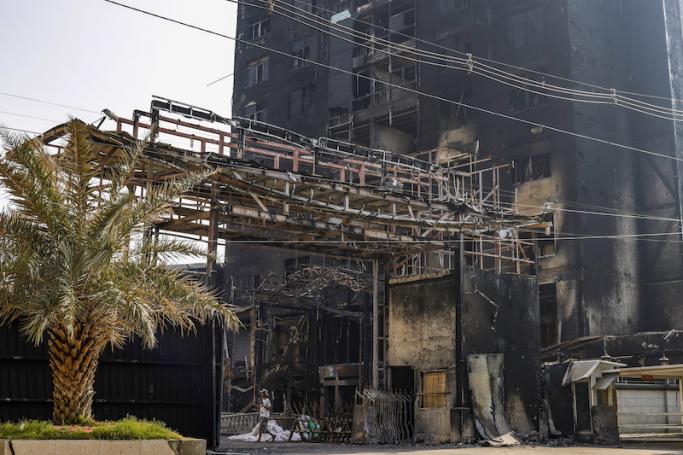(Commentary) After the February 2021 coup d’état in Myanmar, China surreptitiously stepped up its engagement with Myanmar’s junta. While falsely professing support for international calls for a return to democracy, Beijing has armed the junta and clandestinely exported small arms and munitions, and CH-3 drones to the Tatmadaw or Myanmar military.
In recent months, Beijing has also developed very strong ties with the Tatmadaw-backed Union Solidarity & Development Party (USDP), which fared miserably in the parliamentary polls held in Myanmar in 2020. The top 50 leaders of the USDP are currently in Kunming in western China undergoing a six-month course in Mandarin.
However, it appears that the continuing international isolation of the Burmese military regime including its inability to reduce armed opposition to its rule domestically and secure legitimacy internationally is holding back China from taking its relations further with the junta.
Holding the Lancang-Mekong Cooperation (LMC)'s rotating chair in 2022, Myanmar was expected to host a summit of the organization towards the end of last year but it was not held because China's Premier Li Keqiang did not respond to Myanmar junta's invitation for the summit. This meant that there was no chance of Army Chief Min Aung Hlaing (MAH) meeting with a senior Chinese official in person. MAH has not yet been able to meet a senior Chinese leader or official since the coup on 1 February 2021.
Beijing's negative response to the proposed summit also came as Myanmar's ministers have been barred from meetings of ASEAN after the Myanmar junta failed to make progress in implementing the five-point peace plan drawn up by ASEAN in April 2021.
China appeared to signal that it would not prioritize its relationship with the Myanmar military regime above its relationship with other ASEAN countries.
Beijing's concerns may not just be diplomatic with Myanmar as the growing conflict in the country is undermining the investment environment, with Chinese projects facing growing risks as the anti-coup conflicts escalate across the country. The Myanmar people view China as a supporter of the military junta in their country and there have been many attacks on Chinese properties and investments in Myanmar since the coup in 2021. Out of 7,800 clashes recorded nationwide since the
coup in 2021, 300 have taken place in areas where major Chinese project sites are located, with 100 in 19 townships where China's oil and natural gas pipeline projects are located.
What could further upset Beijing’s plans is the growing resistance by pro-democracy resistance forces, known as People’s Defence Forces (PDFs), in Myanmar, creating further destabilization. The PDFs, in conjunction with ethnic armed organizations (EAOs), have been carrying out attacks on Tatmadaw personnel and facilities and a large number of junta soldiers and officers have been killed in such attacks. More than 250 of Myanmar’s 330 townships have witnessed attacks on police and military by PDFs and EAOs.
All these developments raise questions as to whether the Myanmar junta might be gradually falling out of favour with Beijing.
This commentary is provided by a writer who prefers to remain anonymous.












